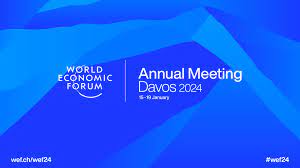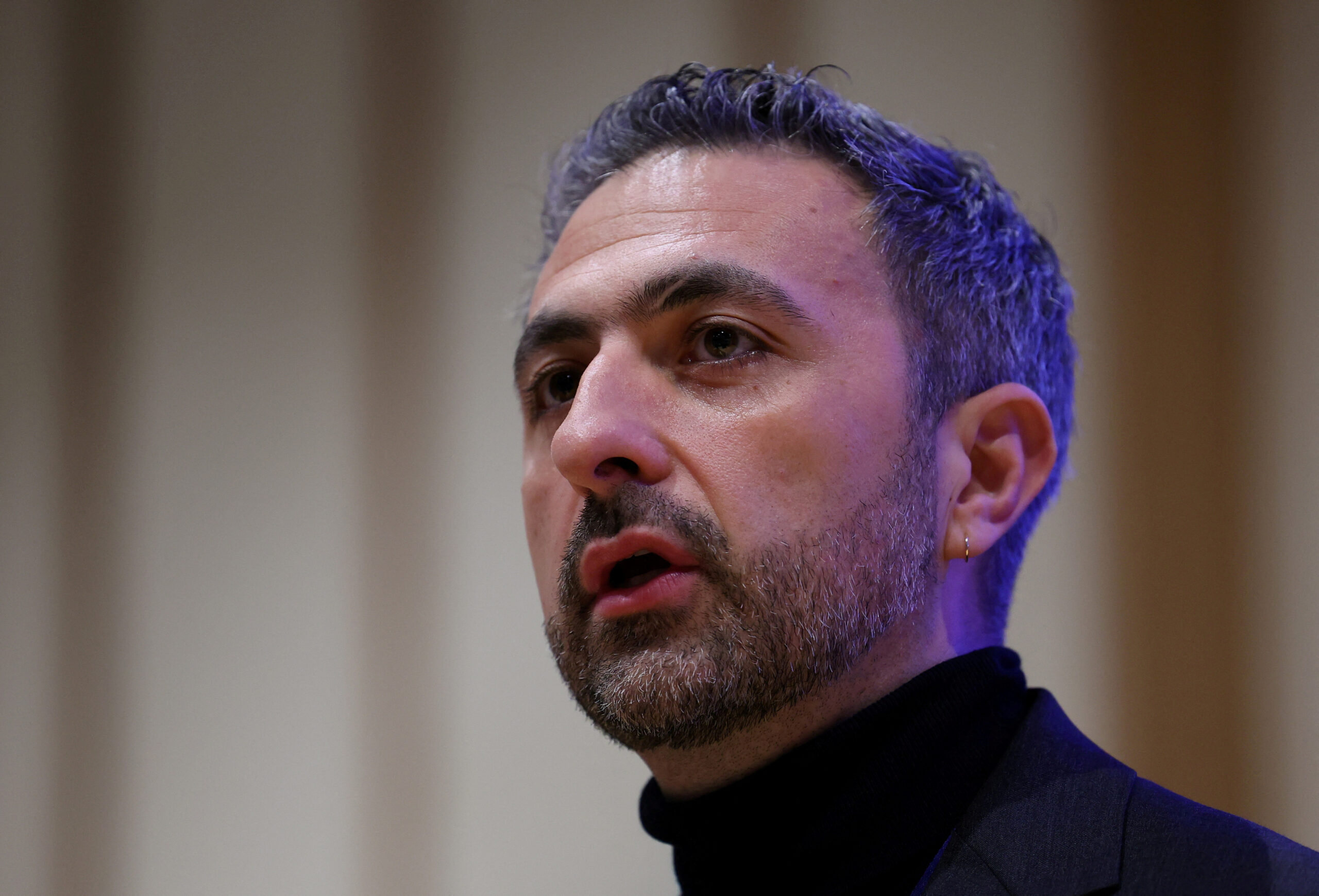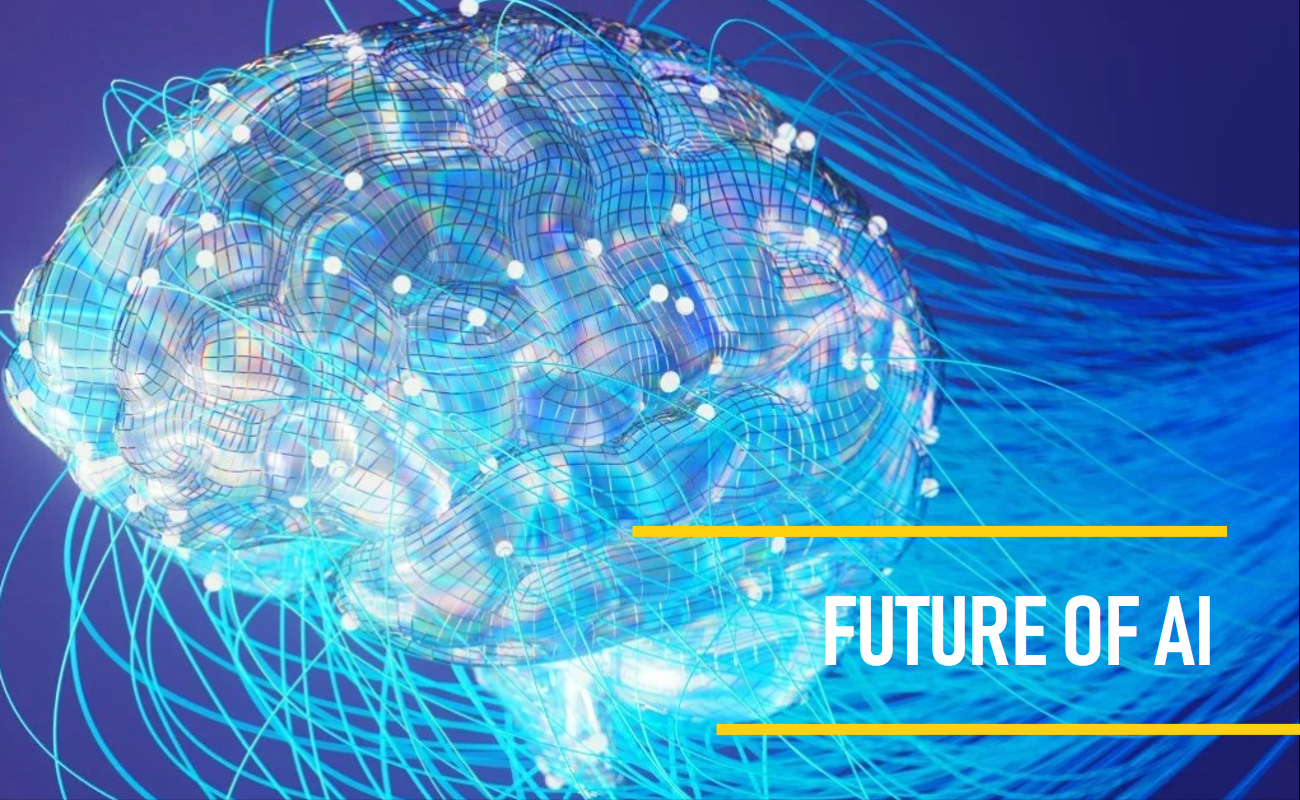AI
World Economic Forum Annual Meeting Davos 2024: Challenges, Themes, and Resolutions for Economic Development in the Age of AI

Table of Contents
Introduction
The World Economic Forum Annual Meeting 2024 is a significant event that brings together leaders from various fields to discuss and address the most pressing issues facing the world today. The meeting, which is scheduled to take place from January 15th to 19th, 2024, in Davos-Klosters, Switzerland, will focus on four key themes: Achieving Security and Cooperation in a Fractured World, Creating Growth and Jobs for a New Era, Artificial Intelligence as a Driving Force for the Economy and Society, and A Long-Term Strategy for Climate, Nature, and Energy.
The World Economic Forum Annual Meeting 2024 is a highly anticipated event that will bring together leaders from around the world to discuss and address the most pressing issues facing the global economy. The meeting will focus on four key themes, including the role of artificial intelligence in driving economic growth and development.
Challenges
The current state of the world is rife with challenges that pose a significant threat to economic growth and development. Geopolitical instability, climate change, and technological change are some of the major challenges that are being faced. One of the most rapidly advancing technological changes is the rise of artificial intelligence (AI), which has the potential to disrupt industries and create new challenges for policymakers and business leaders alike. As AI continues to evolve, it will be crucial for individuals and organizations to adapt and stay abreast of the latest developments in order to remain competitive and navigate the challenges of the future.

Themes
The World Economic Forum Annual Meeting 2024 will focus on four key themes that are critical to addressing the challenges facing the global economy. These themes include:
Achieving Security and Cooperation in a Fractured World
The upcoming meeting has a major theme that revolves around the need for greater security and cooperation in a world that is becoming increasingly fragmented. The theme will delve into the challenges that the global community is facing, such as geopolitical tensions, terrorism, and cyber threats. The discussion will aim at finding solutions to these issues and exploring ways to foster greater collaboration among nations. This will help ensure that we can all live in a safer and more stable world.
Creating Growth and Jobs for a New Era
The second theme of the meeting highlights the need to foster new opportunities for growth and job creation in the global economy. This is a critical aspect that needs to be addressed to tackle the challenges faced by the global workforce, particularly in light of the impact of automation. The discussions will also delve into the need for new skills and training to ensure that the workforce remains equipped to handle the changing needs of the industry. By exploring these issues, the meeting aims to identify actionable steps that can be taken to promote inclusive and sustainable economic development on a global scale.
Artificial Intelligence as a Driving Force for the Economy and Society
The third theme of the meeting is set to delve into the subject of artificial intelligence and its role in driving economic growth and development. The discussion will centre on exploring the potential of AI to revolutionize various industries and open new doors for innovation and growth. With the rapid advancements in AI technology, this is a topic of great interest to many, as it could lead to significant progress and advancements in various sectors. The discussion will seek to uncover the possibilities and potential applications of AI in driving economic growth and development.
A Long-Term Strategy for Climate, Nature, and Energy
During the upcoming meeting, the fourth and final theme will be centred around the pressing need for a long-term strategy to tackle the challenges of climate change, biodiversity loss, and energy transition. This theme will delve deeper into the various challenges that the world is currently facing, highlighting the importance of developing new technologies and policies to effectively address these critical issues. The discussion is expected to be insightful, providing valuable insights into potential solutions and strategies that can be implemented to mitigate the negative impact of these challenges on the world.
Resolves
The World Economic Forum Annual Meeting 2024 will provide an opportunity for leaders from around the world to come together and develop new strategies for addressing the challenges facing the global economy. The meeting will focus on developing new policies and initiatives that can help to promote economic growth and development, while also addressing the challenges of climate change, geopolitical instability, and the rise of artificial intelligence.
Conclusion
The World Economic Forum Annual Meeting 2024 is a critical event that will bring together leaders from around the world to address the most pressing issues facing the global economy. The meeting will focus on four key themes, including the role of artificial intelligence in driving economic growth and development. By working together, leaders from around the world can develop new strategies and initiatives that can help to promote economic growth and development, while also addressing the challenges of climate change, geopolitical instability, and the rapid pace of technological change.
FAQs
Q: When and where is the World Economic Forum Annual Meeting 2024 taking place?
A: The World Economic Forum Annual Meeting 2024 is scheduled to take place from January 15th to 19th, 2024, in Davos-Klosters, Switzerland.
Q: What are the themes of the World Economic Forum Annual Meeting 2024?
A: The meeting will focus on four key themes: Achieving Security and Cooperation in a Fractured World, Creating Growth and Jobs for a New Era, Artificial Intelligence as a Driving Force for the Economy and Society, and A Long-Term Strategy for Climate, Nature, and Energy.
Q: What are the challenges facing the global economy?
A: The world is currently facing several challenges that threaten economic growth and development. These challenges include geopolitical instability, climate change, and the rapid pace of technological change. The rise of artificial intelligence, in particular, has the potential to disrupt industries and create new challenges for policymakers and business leaders alike.
Q: What are the resolves of the World Economic Forum Annual Meeting 2024?
A: The meeting will focus on developing new policies and initiatives that can help to promote economic growth and development, while also addressing the challenges of climate change, geopolitical instability, and the rise of artificial intelligence.
Q: Who will attend the World Economic Forum Annual Meeting 2024?
A: More than 300 public figures, including more than 60 heads of state and government, will attend the meeting.
AI
Microsoft’s Strategic Move: DeepMind Co-founder Suleyman to Lead Consumer AI Unit, Absorbing Inflection Staff

Table of Contents
Introduction
In a significant development in the tech industry, Microsoft has made a strategic move by hiring DeepMind co-founder, Mustafa Suleyman, to lead its consumer AI unit. This decision not only highlights Microsoft’s commitment to advancing in the AI sector but also signifies a consolidation of talent and expertise within the company.
The Significance of Microsoft’s Hire
Microsoft’s decision to bring on board Mustafa Suleyman, a prominent figure in the AI community, underscores the company’s focus on strengthening its position in the consumer AI space. Suleyman’s background and experience in artificial intelligence make him a valuable addition to Microsoft’s leadership team.
Implications for Microsoft’s Consumer AI Unit
With Suleyman at the helm of its consumer AI unit, Microsoft is poised to drive innovation and enhance its offerings in areas such as virtual assistants, personalized recommendations, and more. The infusion of talent from Suleyman’s AI start-up, Inflection, further bolsters Microsoft’s capabilities in delivering cutting-edge AI solutions to consumers.
Consolidating Microsoft’s Lead in the Sector
By absorbing most of the staff from Inflection, Microsoft is not only expanding its talent pool but also leveraging the expertise and insights gained from Suleyman’s team. This move positions Microsoft as a frontrunner in the competitive AI landscape, enabling the company to stay ahead of the curve and deliver impactful AI-driven experiences to users.
The Future of Consumer AI at Microsoft
Under Suleyman’s leadership, Microsoft is expected to drive forward-thinking initiatives that push the boundaries of consumer AI. With a focus on user-centric innovation and ethical AI practices, Microsoft is poised to shape the future of AI-powered technologies and services for consumers worldwide.
Conclusion
Microsoft’s decision to appoint Mustafa Suleyman to lead its consumer AI unit marks a pivotal moment in the company’s journey towards advancing in the AI space. By combining talent from Inflection with its existing resources, Microsoft is well-positioned to drive innovation, deliver exceptional consumer experiences, and solidify its lead in the ever-evolving world of artificial intelligence.
AI
Unveiling the Ethical Dilemma: Microsoft AI Engineer’s Concerns on Copilot Designer Safety

Introduction
In a recent revelation, a Microsoft AI engineer has raised red flags about the safety concerns surrounding Copilot Designer, shedding light on disturbing scenes generated by the tool that have yet to be adequately addressed by Microsoft. This article delves into the intricacies of this issue, exploring the implications and ethical considerations surrounding AI technology.
1: Understanding Copilot Designer
Copilot Designer is a cutting-edge AI tool developed by Microsoft that aims to assist users in generating code and design elements efficiently. Leveraging machine learning algorithms, Copilot Designer analyzes patterns and provides suggestions to streamline the design process.
2: The Engineer’s Alarming Discovery
The Microsoft AI engineer discovered that Copilot Designer was generating disturbing scenes that raised ethical concerns. These scenes, when overlooked, could potentially have far-reaching implications on user experience and societal norms.
3: Unaddressed Concerns by Microsoft
Despite the engineer’s warnings, it appears that Microsoft has not taken adequate steps to address the safety concerns associated with Copilot Designer. This lack of action raises questions about the company’s commitment to ethical AI development and user well-being.
4: Ethical Implications of AI Technology
The incident with Copilot Designer underscores the broader ethical implications of AI technology. As AI continues to permeate various aspects of our lives, it becomes imperative to prioritize ethical considerations to prevent unintended consequences.
5: Importance of Transparency and Accountability
Transparency and accountability are crucial pillars in ensuring the responsible development and deployment of AI technologies like Copilot Designer. Companies must be transparent about their AI systems’ capabilities and limitations while being held accountable for any potential harm they may cause.
6: The Role of Regulatory Bodies
Regulatory bodies such as the FTC play a vital role in overseeing the ethical use of AI technologies. By collaborating with industry experts and stakeholders, regulatory bodies can establish guidelines and standards to safeguard against the potential misuse of AI systems.
7: Moving Towards Ethical AI Development
In light of the concerns the Microsoft AI engineer raised, there is a pressing need for industry-wide discussions on ethical AI development. By fostering a culture of responsibility and accountability, we can ensure that AI technologies like Copilot Designer are developed and utilized to prioritise user safety and well-being.
Conclusion
The revelations brought forth by the Microsoft AI engineer regarding Copilot Designer serve as a wake-up call for the tech industry to reevaluate its approach towards ethical AI development. By addressing safety concerns proactively and prioritizing transparency and accountability, we can pave the way for a future where AI technologies enhance our lives responsibly and ethically.
AI
World at a Crossroads: Extinction or a New AI-Enabled Civilization?

1: The Precarious State of Our World
In a world grappling with the dual challenges of relentless warfare and the impending threat of climate change, humanity finds itself standing at a crossroads. As nations engage in power struggles and our planet faces environmental peril, the search for solutions has led some to explore unconventional avenues. One such avenue gaining increasing attention is the role of artificial intelligence (AI) in steering our collective destiny.
2: War and Climate Change: The Twin Perils
War: A Never-Ending Struggle
As conflicts persist across the globe, the human toll continues to rise. The sheer scale of destruction witnessed in recent conflicts underscores the urgent need for innovative approaches to peacekeeping and conflict resolution.
According to the Stockholm International Peace Research Institute (SIPRI), global military spending reached a staggering $1.83 trillion in 2023, the highest level since the end of the Cold War. This financial commitment to warfare comes at the expense of investments in critical areas such as healthcare, education, and sustainable development.

Climate Change: A Looming Catastrophe
On the other front, climate change poses an existential threat to our planet. The latest report from the Intergovernmental Panel on Climate Change (IPCC) warns of irreversible damage if immediate and drastic measures are not taken. Rising temperatures, extreme weather events, and loss of biodiversity are already taking a toll on ecosystems and vulnerable communities.
3: The AI Solution: A Beacon of Hope?
AI’s Potential to Exceed Human Intelligence
Amid these challenges, there is a growing chorus advocating for the integration of artificial intelligence into our decision-making processes. Proponents argue that machines with the ability to surpass human intelligence could offer innovative solutions to complex global issues.
Leading AI researcher, Dr. Angela Chen, points out, “AI has the potential to process vast amounts of data, identify patterns, and make predictions at speeds and scales beyond human capability. This could be instrumental in addressing the root causes of conflicts and formulating effective climate change mitigation strategies.”
4: The Dark Side of AI Advancement
Ethical Concerns and Unintended Consequences
While the promise of AI is compelling, it is not without its ethical dilemmas and potential pitfalls. The development of superintelligent machines raises concerns about accountability, control, and unintended consequences.
Renowned ethicist, Professor Maya Rodriguez, warns, “Handing over significant decision-making power to AI systems requires careful consideration. What if these systems, in their pursuit of efficiency, prioritize outcomes that are detrimental to human values or lead to unforeseen negative consequences?”
5: Striking a Delicate Balance
A Call for Ethical AI Development
In the quest for a future where AI plays a constructive role, experts emphasize the importance of responsible and ethical development. This includes transparent decision-making algorithms, robust accountability mechanisms, and international cooperation to prevent the weaponization of AI technology.
The Partnership on AI, a consortium of major tech companies and research institutions, aims to establish guidelines for the ethical use of AI. Their commitment to fostering collaboration and sharing best practices reflects a collective recognition of the need for responsible AI deployment.
6: The Role of AI in Conflict Resolution
AI as a Mediator and Peacekeeper
One potential application of AI in addressing global conflicts is its role as a neutral mediator. By processing historical data, identifying underlying causes, and proposing unbiased solutions, AI systems could contribute to more effective and impartial conflict resolution.
Moreover, AI-driven simulations and predictive models could assist in anticipating potential conflicts, allowing for proactive measures to prevent escalation. These tools could become invaluable assets in the pursuit of lasting peace.
7: AI’s Environmental Stewardship
Mitigating Climate Change Through Innovation
On the environmental front, AI presents itself as a tool for mitigating the impact of climate change. Advanced algorithms can analyze climate data to enhance our understanding of complex environmental systems. This knowledge, in turn, enables more precise and effective strategies for conservation and sustainable resource management.
In the energy sector, AI-powered technologies are revolutionizing renewable energy production and consumption. From optimizing solar panel efficiency to managing smart grids, AI’s potential to revolutionize our approach to clean energy is vast.
8: The Human-AI Partnership
Collaboration for a Better Future
Rather than viewing AI as a replacement for human decision-making, proponents argue for a collaborative approach. By combining human intuition, creativity, and emotional intelligence with AI’s analytical prowess, we may unlock unprecedented solutions to the challenges that threaten our existence.
The World Economic Forum’s Global AI Council promotes the idea of a human-AI partnership, emphasizing the importance of inclusive governance and diverse perspectives in shaping the trajectory of AI development. This collaborative model aims to ensure that the benefits of AI are shared equitably across societies.
9: Navigating the Path Forward
Charting a Course for the Future
As we stand at this pivotal moment in history, the path forward is fraught with uncertainties. The convergence of war, climate change, and the potential of AI demands a careful and thoughtful approach.
International cooperation, ethical AI development, and a commitment to sustainable practices are crucial components of a roadmap that can lead us away from the brink of extinction and towards a new era of AI-enabled civilization. The choices we make today will shape the destiny of generations to come, and it is incumbent upon us to choose wisely.
In the face of adversity, the prospect of a future where AI and humanity collaborate to overcome our greatest challenges is both daunting and inspiring. The world may indeed be at a crossroads, but with informed decisions and responsible stewardship, we have the power to forge a path towards a brighter and more sustainable future.
-

 Featured3 years ago
Featured3 years agoThe Right-Wing Politics in United States & The Capitol Hill Mayhem
-

 Elections 20242 months ago
Elections 20242 months agoAnalyzing Trump’s Super Tuesday Triumph and Nikki Haley’s Strategic Moves
-

 News2 years ago
News2 years agoPrioritizing health & education most effective way to improve socio-economic status: President
-

 China3 years ago
China3 years agoCoronavirus Pandemic and Global Response
-

 Canada3 years ago
Canada3 years agoSocio-Economic Implications of Canadian Border Closure With U.S
-

 Conflict3 years ago
Conflict3 years agoKashmir Lockdown, UNGA & Thereafter
-

 Democracy3 years ago
Democracy3 years agoMissing You! SPSC
-

 Democracy3 years ago
Democracy3 years agoPresident Dr Arif Alvi Confers Civil Awards on Independence Day
























